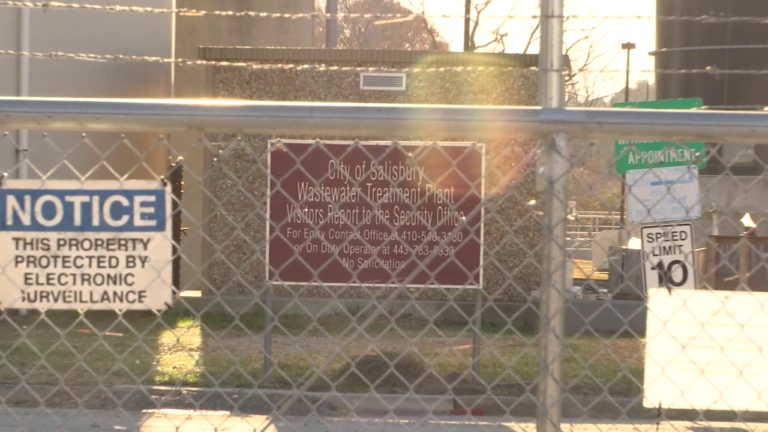Salisbury improves wastewater treatment plant amid discharge violations

A new report released Wednesday highlighting wastewater treatment facilities in Maryland, and surrounding states.
The report, written by Environmental Integrity Project, a non-profit organization that focuses on environmental law enforcement, found that Salisbury's plant is releasing higher levels of nutrients then they are supposed to.
The city however tells us this is not new information, adding that the city is on track to meet their required standards by December of this year.
Salisbury's Wastewater Treatment Plant has a history of pollution issues and they are being highlighted by the Environmental Integrity Project.
On Wednesday, the non-profit organization released a new report stating that Salisbury's plant is discharging more than their permit allows.
"Last year the Salisbury plant discharged 22 percent over the limit for phosphorus pollution so last year both phosphorus and nitrogen pollutions and both of those are nutrients that fuel excessive algae blooms in the waterway," says Tom Pelton, Communications Director for the Environmental Integrity Project.
The City of Salisbury tells us they are aware of these issues and that's why they are in the final stages of a brand new treatment plant.
Amanda Pollack, Salisbury's director for Infrastructure and Development, says, "Right now our wastewater plant is in its final stages of a massive upgrade and so the nitrogen, the permit violations that we've had over the last five years we're known. We knew that was going to happen because our last upgrade wasn't successful."
The report also states that if these levels of nitrogen and phosphorus aren't lowered, the city could be fined by the end of December.
"If it continues two things happen number one city rate fares continue to pay huge amounts of money in fines just over the last years the city has paid more than $300,000 in fines," says Pelton.
But the city says that they are right on track to meet that December deadline.
"We're tweaking the process, we're adjusting chemicals, we're adjusting sensors so we're in that acclimation period but we're close so we're on track to meet that December target for the consent order," explains Pollack.


